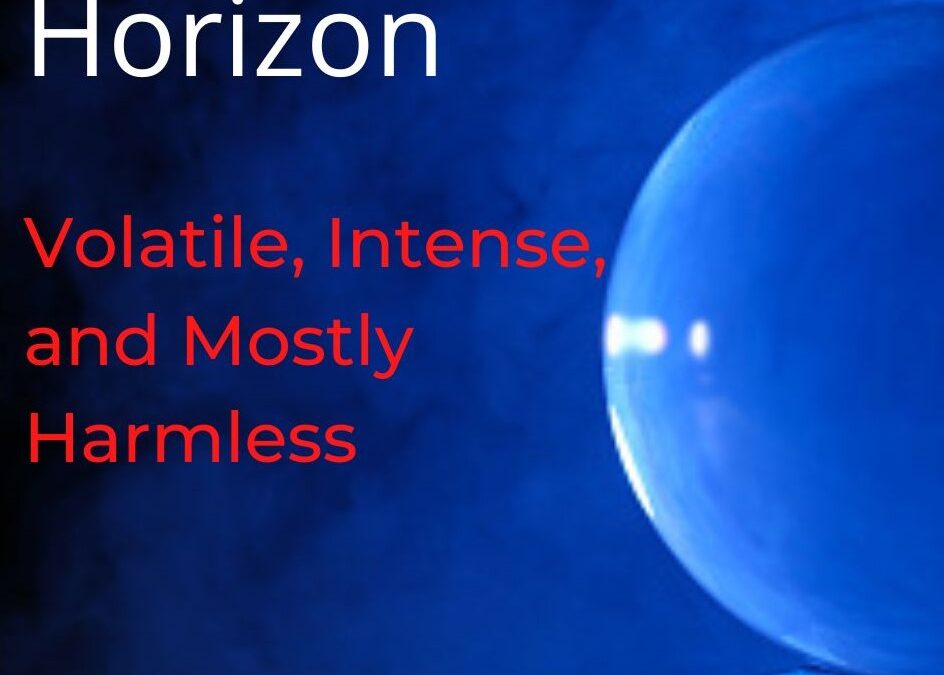
by Nicholas Mitsakos | Artificial Intelligence, Innovation, Public Policy, Science, Technology, Writing and Podcasts
Stunning capabilities are emerging from large language models like GPT 4 that, until very recently, were thought to be only theoretical. We could never have the data sets or the processing power to generate real and usable results. Well, all that has changed – rather suddenly.
But is it time for the torches and pitchforks? What are the serious risks that accompany this technology?
There will be good and bad, like every new era. Will it be the Middle Ages all over again and we’ll experience The Plague before the Renaissance, or will it be more balanced and reasonable? There are good, bad, and many things in between whenever humanity advances.
Let it happen. Put down the pitchforks.

by Nicholas Mitsakos | Artificial Intelligence, Biotechnology, Book Chapter, drug discovery, Green Energy, Health Care, Innovation, Public Policy, Science, Technology, Transformative businesses, Writing and Podcasts
Our most intractable problems cannot be solved with behavior modification, conservation, or our existing technology, regardless of its advanced or widespread applications. Only new knowledge creating innovative solutions can address our most intractable problems. This can only be achieved through basic scientific discoveries and then combining these discoveries with enterprise-based innovation, commercial discipline, and competition. Innovation, creativity, and competitive dynamics create the most effective innovations, the best solutions, and the most sustainable companies. Developing the best public policy as well as the best structure to enable innovative and creative solutions, as well as the economic incentive to scale these opportunities and make them economically sustainable. Central planning, bureaucratic industrial policy, government-led economic management, and dictatorial focus have always failed, and always will.

by Nicholas Mitsakos | Book, Book Chapter, Economy, Innovation, Investment Principles, Public Policy, Science, Technology, Trade, Writing and Podcasts
Zero-sum thinking has begun. Despite comparative advantage, mutual cooperation, and specialization proving indisputably more beneficial than any other approach to economic interaction, this ideal is under threat. Rules and norms for economic integration lifted hundreds of millions of people out of poverty, created an order-of-magnitude increase in the average wealth of the Western population, and benefited countless hundreds of millions enabling a way of life otherwise unimaginable post-World War II. Now that system is under threat as developed countries subsidize alternative energy, attract manufacturing via expensive subsidies, and restrict the flow of goods and capital. Mutual benefit is out; national gain is now the highest priority. In other words, stupidity and zero-sum thinking have taken over. A handful of bureaucrats, regardless of how brilliant each may be, can never equal the mind of the market. Management and control usually spell disaster eventually. Managed focus on technological development for products and services the central government believes have greater substantial benefit to the overall society may not be calamitous, but the law of unintended consequences has not been repealed. It will be inefficient, substandard, and create potentially dangerous side effects. Innovation, creative freedom, and unstructured thought are essential components to the development of any technology of substance and disruptive benefit.

by Nicholas Mitsakos | Book Chapter, Innovation, Science, Technology, uncertainty, Writing and Podcasts
In his preamble to “The Theory of Relativity,” Einstein implored his reader to, “set aside your proud certainty” because he was about to present something quite revolutionary, iconoclastic, and, as he discovered for many years after publication, challenging to be broadly accepted. Of course, his insights would be vindicated, and would soon be considered one of the leading minds of the 20th century, and perhaps one of the great minds in scientific history. Einstein knew things that everybody else was ignorant of and was ignorant of things that everybody else knew. That was probably the key to his great thinking – he assumed no knowledge and didn’t confuse himself with the trivial or unimportant. Always explore, race to keep up, clear the field, and let other vibrant minds pass. It is the spark of human creation, analysis, and understanding that gives us a glimpse of nature’s fundamental beauty. We only touch a small fraction, and our hardest work and most diligent thinking expose a little bit more – and that is one of humankind’s most worthwhile pursuits. Set aside proud certainty; be indifferent to your failings and the cacophony of critics. See, question, verify, and question again.

by Nicholas Mitsakos | Artificial Intelligence, Biotechnology, Book, China, commodities, Digital Assets, Economy, Financial Technology, Public Policy, Russia, Technology, Transformative businesses, Writing and Podcasts
This book explores the next decade’s more frequent and intense economic, geopolitical, fiscal, and market volatility, technological innovation, disruption, and hype.
Long-term opportunity exists, and this book uses a 10-year horizon as a surrogate for a long-term perspective. Some of the world’s most important industries are being disrupted, especially finance via digital assets and Blockchain-based businesses, life sciences via gene editing, DNA sequencing, and CRISPR, and communications via advanced wireless data networks, software technologies including artificial intelligence, and new interactive platforms such as the Metaverse.

by Nicholas Mitsakos | Artificial Intelligence, Financial Technology, Technology, Transformative businesses, Writing and Podcasts
The collapse of FTX shows how easily crypto is manipulated and the “crypto ecosystem” is fundamentally driven by centralized players and not any true form of decentralized or digital assets. Cryptocurrency is a sideshow and benefits no one other than speculators hoping for a greater fool. However, the combination of digital asset regulation, central-bank cooperation, and distributed assets via decentralized platforms still represents one of the most intriguing opportunities, and, with the potential disruption of global finance, one of the most exciting investment areas today.

by Nicholas Mitsakos | Artificial Intelligence, Biotechnology, Book Chapter, Finance, Financial Technology, Investment Principles, Technology, The Market, Writing and Podcasts
The onslaught of market-making bad news seems almost a daily event. A gloomy picture of slowing economic growth, elevated inflation, and confusing fiscal and monetary policy has added a lethal mixture to the market’s performance. Fiscal stimulus is sidelined, and monetary policy is constricting economic growth and entrepreneurial innovation. It makes for a gloomy outlook and an even more depressing long-term perspective. The next 10 years look more like a lost decade. High-growth company valuations have been significantly discounted, and over time as discount rates drop, their valuations are likely to increase substantially. Higher-yielding fixed income securities will be a standout performer as interest rates are reduced, the higher-yielding BDCs, REITs, leveraged loan securities, and high cash flow instruments, along with high-dividend equities, will prove extremely attractive and are currently available at bargain prices. Providers of value and users of value will be the winners for the next decade. Those generating real cash flow and disruptive innovation will define the next decade.

by Nicholas Mitsakos | Investment Principles, Technology, Transformative businesses, uncertainty, Writing and Podcasts
Predictions usually end up being nonsense. We simply draw a trajectory from what we know today. But innovation is a discontinuity. Things are unpredictable because innovation does not come from consensus thinking. It comes from small groups and individuals with a spark of entrepreneurship, intelligence, and vision. One of the fundamental tenets of predicting technology is that most forecasters get things spectacularly wrong.

by Nicholas Mitsakos | Artificial Intelligence, Economy, Green Energy, Public Policy, Technology, uncertainty, Writing and Podcasts
The rewards for innovative success have become enormous and unpalatable, especially among the five technological giants (Amazon, Apple, Facebook, Google, and Microsoft) forcing these firms to spend absurd amounts of money on lobbying in Washington DC. It’s an expensive and wasteful distraction, but essential in this brave new world. If nothing else, it clogs innovation. It is to our detriment – and the world is literally burning while politicians fiddle – and even more disastrously – impede innovative activity. Applying friction to free thinking and new ideas never ends well.

by Nicholas Mitsakos | Economy, Technology, uncertainty, Writing and Podcasts
Brilliance combined with quirkiness and rule-breaking perpetuates an image of daring entrepreneurs and risk-taking capitalists generating outsized wealth. This simply doesn’t happen unless what is created matters. While we might question how much one needs to play a videogame or interact with social media, an advanced society needs advanced solutions to the intractable problems it faces. As John F. Kennedy said, “Our problems are man-made, mankind can solve them, as well.” Perhaps. The harsh reality is that brilliant, hard-working entrepreneurs and thoughtful investors lose much more often than they win. We need their risk-taking and willingness to lose. It’s how we win. We need the benefits technological innovation delivers even if we don’t understand that innovation’s ultimate purpose.

by Nicholas Mitsakos | Artificial Intelligence, Biotechnology, Book Chapter, Technology, Transformative businesses, Writing and Podcasts
Innovation is unpredictable and astonishing – it can address the world’s most critical issues today, from hunger to efficient energy, to devastating diseases. It is also too often misguided, inefficient, and meaningless – creating nothing more than distractions and wastes of time cloaked in an image of technological wonder. Misguided and manipulative business plans sit side-by-side with the groundbreaking disruptions that may address society’s greatest problems.

by Nicholas Mitsakos | Artificial Intelligence, Biotechnology, Financial Technology, Green Energy, Health Care, Investments, Public Policy, Technology, Transformative businesses, Writing and Podcasts
Remarkable things can happen. Or not. Can we solve climate change, food shortage, limited healthcare, and other global stresses – all with TikTok videos? Innovation is unpredictable and astonishing – it can address the world’s most critical issues today, from hunger to efficient energy, to devastating diseases. It is also too often misguided, inefficient, and meaningless – creating nothing more than distractions and wastes of time cloaked in an image of technological wonder. Misguided and manipulative business plans sit alongside the groundbreaking disruptions that may address society’s most significant problems. We don’t have time. Even though there is no clear argument for resources going to a new video-sharing platform or immersive game, that is beside the point. Technology delivers something, nothing else can. It is the only way to find solutions to otherwise intractable and potentially devastating global crises. The freedom to pursue solutions is the essential first step. Letting the best people do their best is still the best policy. It will also generate the best outcome.












